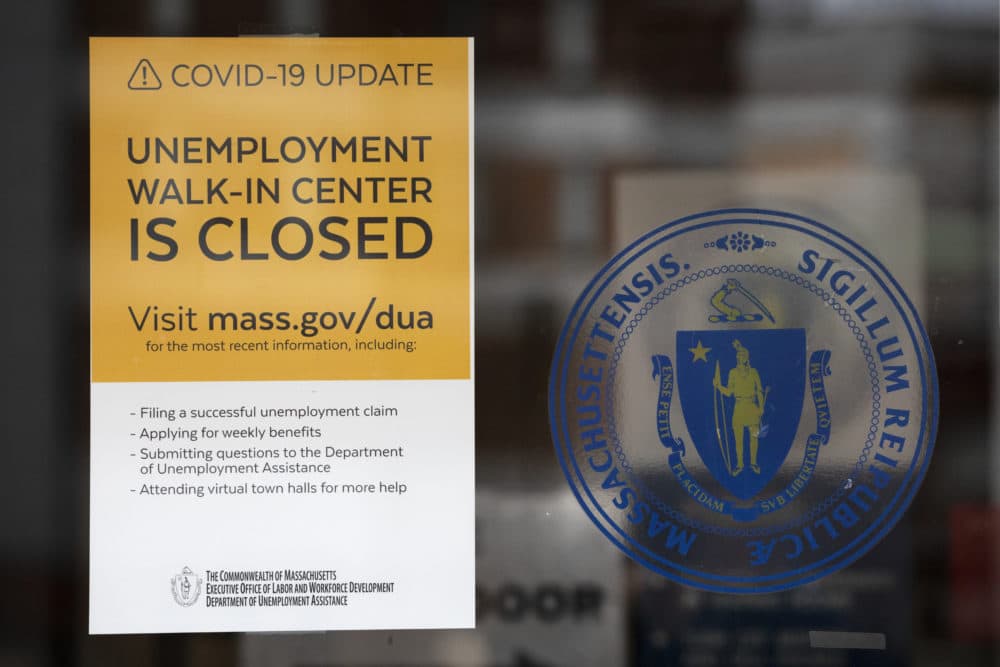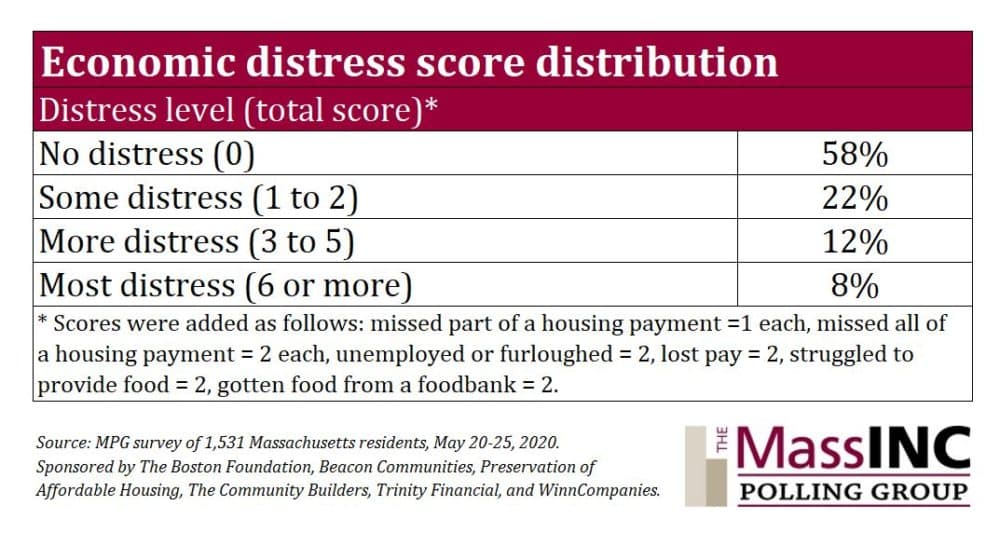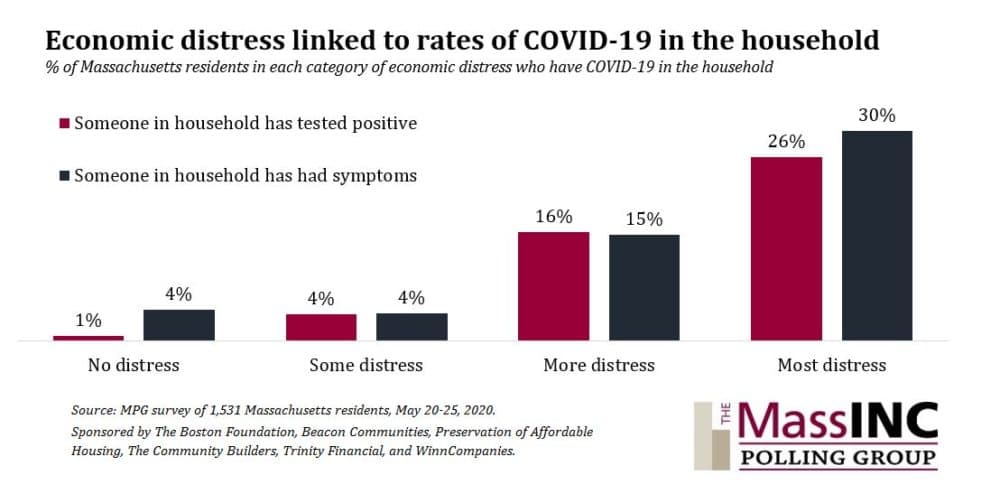Advertisement
Analysis
Struggling And Sick: COVID-19 Compounds Economic Distress For Vulnerable Mass. Residents

The consequences of the coronavirus crisis are heavily concentrated on the same people and groups. Job losses, wage losses, food insecurity and housing troubles are piling onto younger people, people of color, renters, part-time and hourly workers, and people with lower income and education levels.
Now, a new Mass INC Polling Group survey finds people under the most economic strain during the pandemic are also much more likely to be in a household with COVID-19.
To look at economic issues together, we compiled housing, food, jobs and wage data into an economic security index. In all, 58% of residents have not missed a housing payment, lost wages or a job or been affected by food insecurity.

Moving across the spectrum toward those experiencing greater economic hardship:
- 22% have experienced some distress
- 12% have experienced more distress
- 8% are in "most distress," the highest category
There certainly are many other topics that could go into this index, and other weights that could be given to each factor. But looking at how the index stacks up between demographic groups gives a strong sense of how economic pain is distributed on these factors.
Looking at the two most-distressed groups together finds almost half of Black and Hispanic residents in one of those categories, compared to 15% of white and 17% of Asian residents. Disparities are similarly sharp between income and education categories, and between young people and older people. Crucially for the future of housing, many more renters are in distress compared to homeowners.
The relationship between this economic data and survey data on COVID itself is striking.
COVID rates are very tightly focused on those already struggling with economic challenges. Among those facing the most economic distress:
- 30% say someone in their household has had the symptoms, while just 4% of those in less distress say the same.
- Asked about confirmed COVID cases, 26% of respondents in most economic distress also say someone in the household has tested positive for the virus.

This aligns with some of what public data sources have revealed about the coronavirus. Writing on a Harvard study, the Boston Globe reported "during the early weeks of the pandemic ... the mortality rate surged higher in Massachusetts cities, towns, and ZIP codes with larger concentrations of poverty, economic segregation, people of color, and crowded housing."
The survey supports these links, with 15% of nonwhite respondents reporting someone in their household has experienced the symptoms, compared to 6% of white respondents.
The ties between economic difficulties and COVID rates are also strong. Just looking at demographics alone does not find similarly sharp differences in the percent of people with symptomatic members of the household as when economic struggles are examined. Those who have missed housing payments are far more likely to have had COVID hit their household than are those who remain current.
In other words, just looking at people with lower incomes or education levels, or just looking at renters, does not show nearly as strong a link. The picture fully sharpens only when economic distress is added.
It is also likely that COVID in the household is a cause of economic distress, given the weeks off work, lost income, potential medical bills and, in some cases, death of a member of the household. With COVID already concentrated in struggling communities, a diagnosis or symptoms can push a vulnerable household over the economic edge.
The survey adds to a growing body of evidence that the pandemic's health impacts are far from equal across society — and that its economic consequences have been worst among those who could least afford them.
